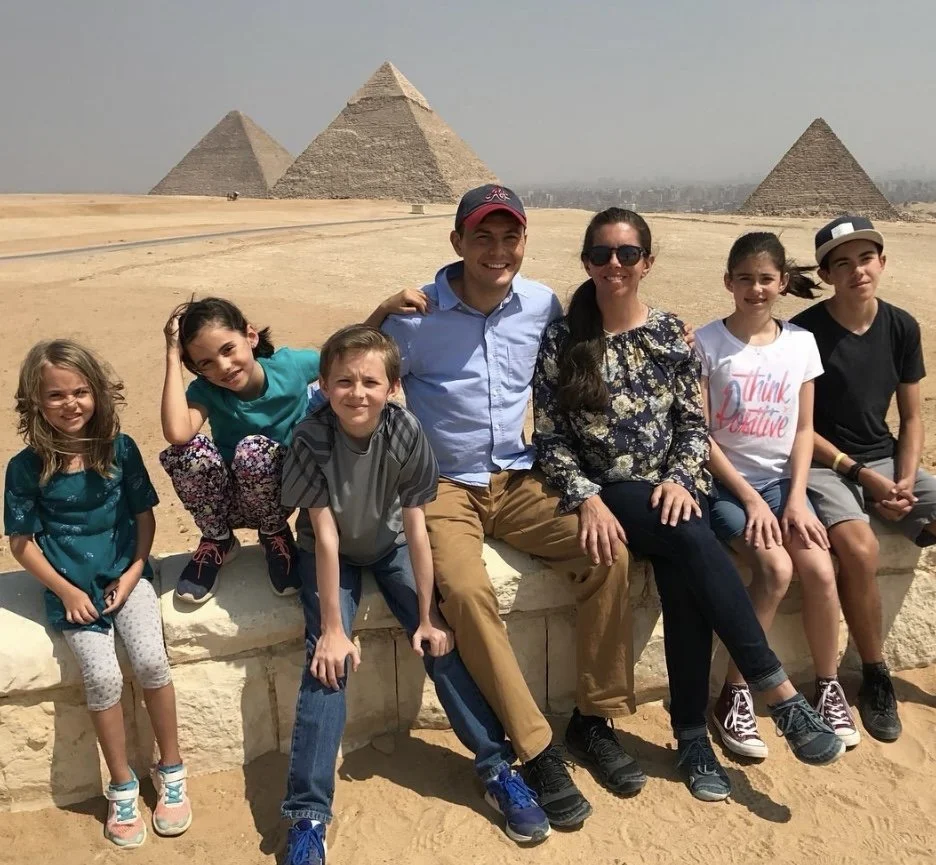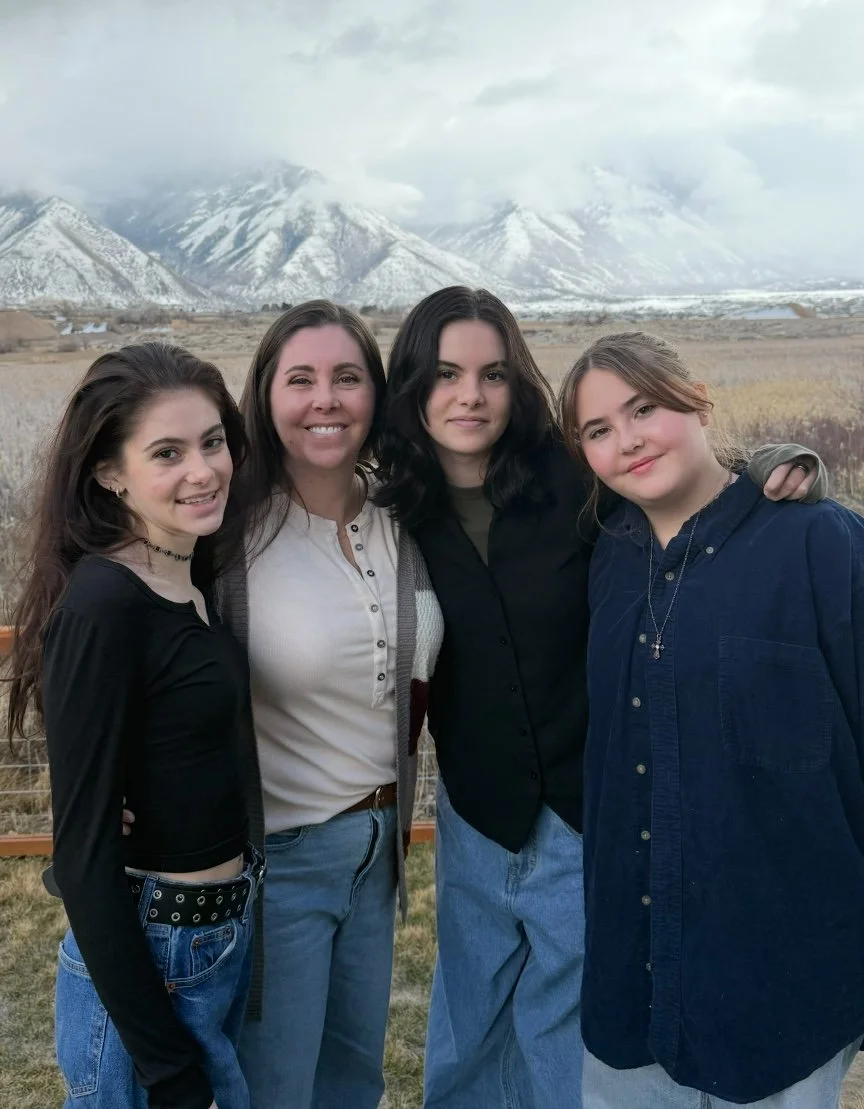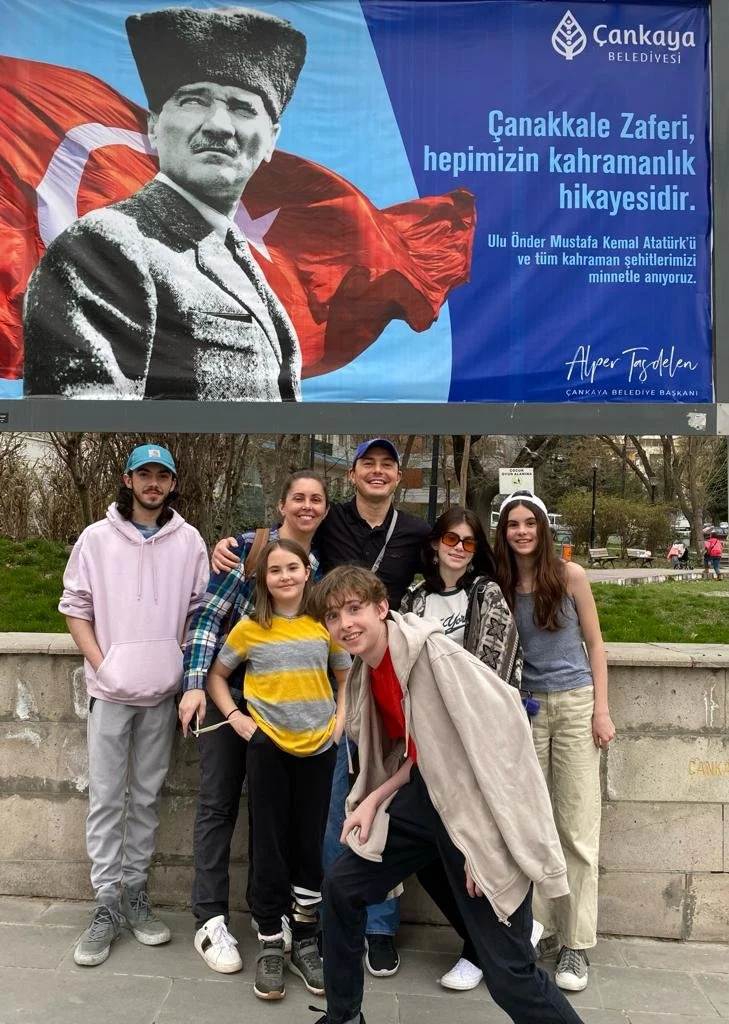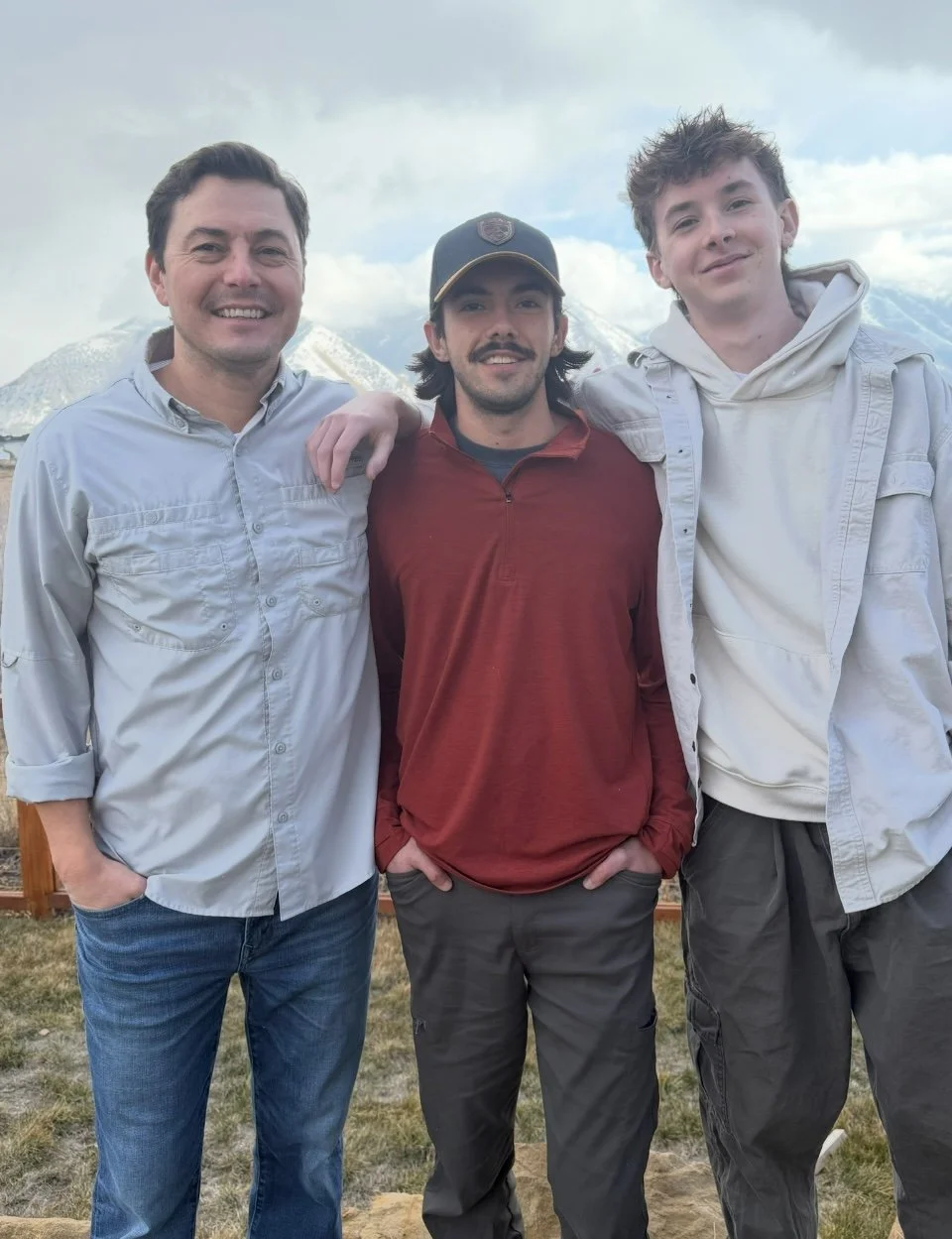Natalie Baldwin has spent her life ensuring things run smoothly—whether as the administrative assistant to the Dean of UVU’s College of Health and Public Service where she currently works, or as the heart of her home in Salem, Utah, where she and her husband, Briggs, are raising five children. But her life’s journey has taught her that even the most careful planning cannot account for the unexpected. Diagnosed with Chronic Myeloid Leukemia in June 2022, Natalie’s health required her husband’s career overseas with the State Department to come to an abrupt halt; until she can hit certain markers, they cannot return to expat living. Instead, the Baldwins were forced to leave their last assignment in Turkey to move near her family in Utah where she could focus on her health. The past ten years of both adventure and change have left Natalie grappling with profound questions—about faith, culture, family, and the unique challenges of raising two LGBTQ children within the framework of her Latter-day Saint beliefs.
Natalie and Briggs’s children range in age from 13 to 22. Their eldest, Easton, is 22 and a manager at a popular chain restaurant. Emery, 20, a manager of a popular food truck, came out as bisexual at 15, but now identifies as pansexual. After exclusively dating women for a while, she now plans to one day marry her current boyfriend. Eli, 18, is a junior in high school, and Estelle, 13, is in middle school. Eloise, a 15-year-old sophomore, is in the process of exploring her identity and currently identifes as bisexual with just the “occasional” moment of attraction to boys. The Baldwin’s family dynamic has been shaped by love, questions, and a steadfast commitment to embracing their children for who they are.
For Natalie, the first major shift came when Emery came out at 15. Having always been open with her parents until then, Emery had given them a small “heads-up” about a year before her formal declaration, processing much of her identity internally. When she finally came out, Natalie’s immediate response was rooted in her conviction: “I know God doesn’t make mistakes. If you’re made that way, it’s the way you’re supposed to be. We’ll love you unconditionally regardless of any decisions you make.” Those words became a mantra, grounding Natalie through the ups and downs that followed.
Yet there were challenges. Living in Cairo at the time, Emery’s sexuality became a complicated and, at times, dangerous issue. In the predominantly Muslim country, where homophobia was rampant, Emery was outed by a peer. The news reached a church leader, who responded by incessantly preaching the Family Proclamation. Of that time, Emery says, “The year between realizing my sexuality, and finally coming out, I was battling some serious internalized homophobia. I couldn’t grasp the fact that I was queer, but I was also supposed to be a righteous daughter of God. It didn’t make sense to me that I could be both at once. I had a million questions, and so many bad days, but I was terrified to share any of these thoughts. My thought process was, ‘If I myself am having such a hard time accepting my own sexuality, how could anyone else’?” Feeling unsafe and unwelcome in a church community that for much of her childhood had taught her negative things about the LGBTQ+ community led Emery to eventually make the decision to step away from church entirely.
Though the family soon relocated back to the U.S., Emery has not returned to church, but Natalie remains proud of the strong, empathetic woman her daughter has become. Emery likewise is grateful for her family’s unconditional support, saying, “Feeling like you don’t belong, and feeling so utterly lost and helpless, is not an easy thing to come back from, especially when a lot of those feelings were created by peers and teachers from what was supposed to be my church, and my community. While I have nothing but love for the church, the hurt that I felt from individuals in the church is one I don’t think I could ever forget. Every single day of my life, I am eternally grateful for my parents who made the choice to learn more, and love more, rather than to judge and to try and teach.”
Of her eldest daughter, Natalie says, “She has a good head on her shoulders. It didn’t take her long to realize who she is doesn’t align with the church, but that doesn’t make her a bad person. The church is just not a good fit for her. Her sexuality, and Eloise’s, have given them an empathy for others we will never fully understand. They have the ability to see people in ways I never could.” The Baldwin’s oldest son has labeled himself “nonpracticing, but with a testimony.” While he occasionally attends church, Natalie points out that often young men feel out of place when, like Easton, they didn’t serve a mission. He “really doesn’t like the outspoken conservative culture in the church, but still has a love and respect for the gospel,” says Natalie who adds that Easton said he never plans on labeling himself an ex-Mormon.
For Natalie, the process of supporting her children has been deeply personal. She says, “I’m not afraid to ask questions, or of the answers that I’ll receive. I trust myself, my intuition, and my ability to hear God. I know God doesn’t make mistakes. The way these children come to us is the way they’re meant to be. Maybe sometimes it doesn’t align perfectly with gospel doctrine, but that doesn’t change the fact that they’re eternal beings with unique gifts and souls.” Briggs has had his own journey to see things through a different lens, thanks to his wife and daughters, and has grown to embrace and love the LGBTQ+ community.
Eloise, Natalie’s 15-year-old, is currently exploring her identity. Unlike Emery, who initially kept much of her early journey private, Eloise has been more open about her feelings from the beginning. She’s also benefitted from her older sister’s experiences and how they’ve prepped the family. Analytical and self-assured, Natalie says Eloise came to this earth like an adult, speaking in full sentences at age one. “Eloise has a strong sense of her worth. She knows she’s a child of loving Heavenly Parents.” That doesn’t mean her path has been without challenges. Recently, she called her mother in tears, asking to be picked up from seminary after a class discussion on good versus evil where another student included the LGBTQ community as an example of “evil.” Eloise has also been privy to conversations in which her peers have said LGBTQ people are mentally ill or just need to go to therapy. While Eloise’s seminary teacher has been a supportive ally, redirecting harmful comments and fostering a more inclusive environment, incidents like these still sting. Yet, Eloise remains resilient, determined to stay true to herself despite the occasional adversity.
Returning to Utah after years overseas presented its own set of challenges. The family had grown accustomed to the somewhat liberal and inclusive culture of the expatriate community. “Living among expats was a different world,” Natalie explains. “The schools were welcoming, the communities open. Moving back to Utah, we’ve had to face deeply rooted anti-LGBTQ sentiments and the realities of living in a predominantly conservative area. It’s made us all want to retract and keep to ourselves, not knowing who we can trust and who will be a safe space.”
For Eloise, navigating this environment in high school has been a learning experience. “She’s queer, she’s female, she’s liberal,” Natalie says. “It’s a triple whammy in this area. But she’s so bright, intelligent, and mature. She’s learning to decide when to speak up and when to let things go. That kind of wisdom is remarkable at her age.”
Natalie herself is no stranger to speaking out. Over the past two years, Natalie has become a visible advocate, not just for her children, but for all those navigating the intersection of faith and identity. Her ward itself reflects the complexities of her environment. Natalie describes her current congregation as very young and predominantly conservative. “We’re the old people here,” she jokes, noting that she and Briggs often feel out of place as what feels like the lone liberals in a sea of Trump signs and conservative culture. Yet, even in this environment, Natalie has found moments of connection. Her social media posts, particularly on Instagram, often address these themes, sparking private messages of support from some other members of her ward and broader community. “People thank me for being outspoken, but they’re afraid to say it publicly,” she shares. “They don’t want to face ostracization, but they’re grateful someone is saying what they feel. If I can make them feel less alone by being the one to speak up, it’s worth the target I’m putting on myself.”
Natalie’s hopes for the church extend beyond her immediate family. “I wish church leaders would genuinely try to get to know a variety of queer people,” she says. “Really know what they think, feel, experience, and then believe them. If they say they feel a certain way or have confirmation from God, don’t question them, just believe them.”
Through it all, Natalie’s love for her children has remained constant. She believes their unique journeys have made her a better mother and a better person. “I know without a doubt that God has guided us on this path,” she says. “Our family is exactly as it is meant to be. And I will never stop advocating for my children—because their worth is infinite, and their stories deserve to be heard.”





















